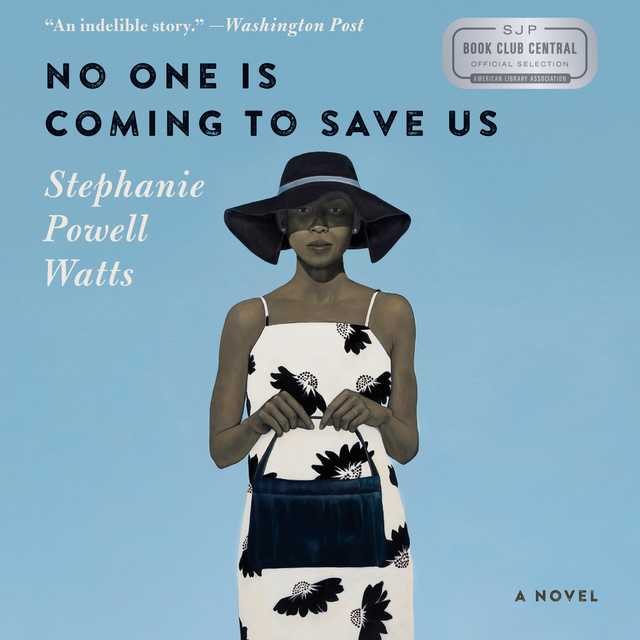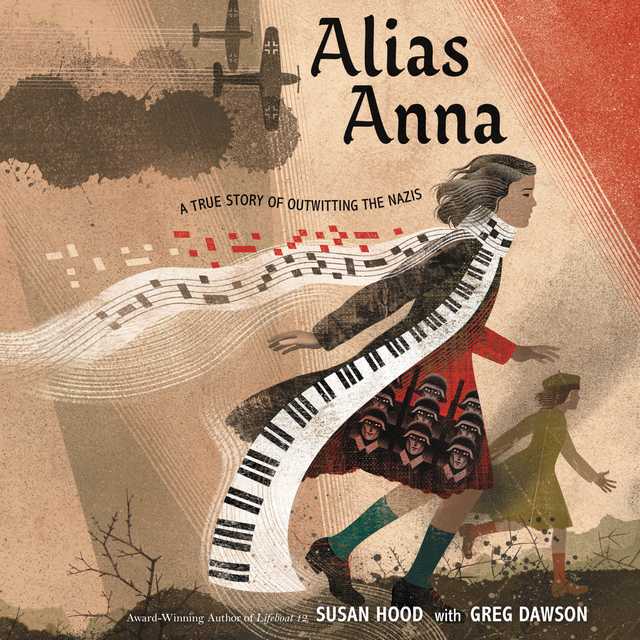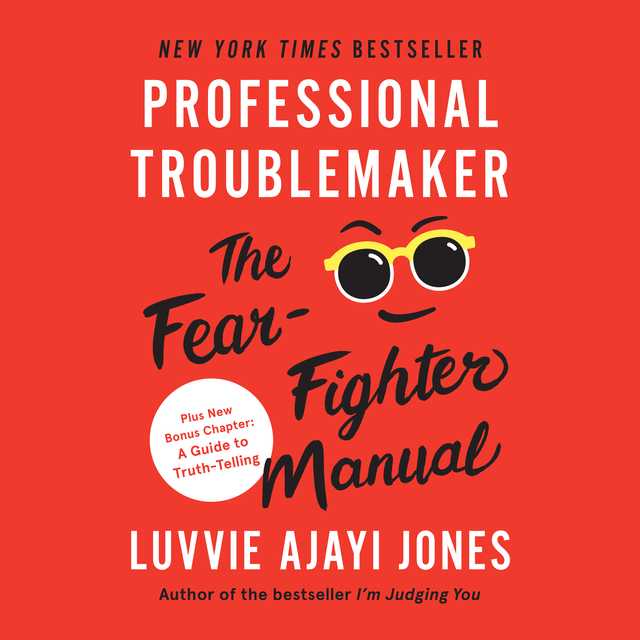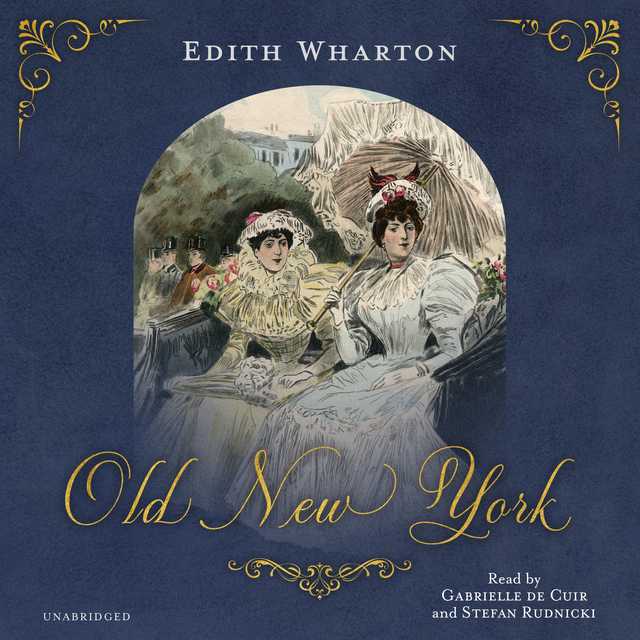No One Is Coming to Save Us Audiobook Summary
JJ Ferguson has returned home to Pinewood, North Carolina, to build his dream house and to pursue his high school sweetheart, Ava. But as he reenters his former world, where factories are in decline and the legacy of Jim Crow is still felt, he’s startled to find that the people he once knew and loved have changed just as much as he has. Ava is now married and desperate for a baby, though she can’t seem to carry one to term. Her husband, Henry, has grown distant, frustrated by the demise of the furniture industry, which has outsourced to China and stripped the area of jobs. Ava’s mother, Sylvia, caters to and meddles with the lives of those around her, trying to fill the void left by her absent son. And Don, Sylvia’s unworthy but charming husband, just won’t stop hanging around.
JJ’s return–and his plans to build a huge mansion overlooking Pinewood and woo Ava–not only unsettles their family, but stirs up the entire town. The ostentatious wealth that JJ has attained forces everyone to consider the cards they’ve been dealt, what more they want and deserve, and how they might go about getting it. Can they reorient their lives to align with their wishes rather than their current realities? Or are they all already resigned to the rhythms of the particular lives they lead?
No One Is Coming to Save Us is a revelatory debut from an insightful voice: with echoes of The Great Gatsby it is an arresting and powerful novel about an extended African American family and their colliding visions of the American Dream. In evocative prose, Stephanie Powell Watts has crafted a full and stunning portrait that combines a universally resonant story with an intimate glimpse into the hearts of one family.
Other Top Audiobooks
No One Is Coming to Save Us Audiobook Narrator
Janina Edwards is the narrator of No One Is Coming to Save Us audiobook that was written by Stephanie Powell Watts
About the Author(s) of No One Is Coming to Save Us
Stephanie Powell Watts is the author of No One Is Coming to Save Us
More From the Same
- Publisher : HarperAudio
- Abraham
- American Gods [TV Tie-In]
- Dead Ringer
- House of Sand and Fog
- Prey
No One Is Coming to Save Us Full Details
| Narrator | Janina Edwards |
| Length | 10 hours 57 minutes |
| Author | Stephanie Powell Watts |
| Category | |
| Publisher | HarperAudio |
| Release date | April 04, 2017 |
| ISBN | 9780062660619 |
Additional info
The publisher of the No One Is Coming to Save Us is HarperAudio. The imprint is HarperAudio. It is supplied by HarperAudio. The ISBN-13 is 9780062660619.
Global Availability
This book is only available in the United States.
Goodreads Reviews
Jennifer
May 13, 2017
Review now posted on https://booknationbyjen.wordpress.comIn a small town in North Carolina an African American family is reaching for the American Dream. Life is hard and full of disappointments as it seems like a black cloud is over them. Ava is desperate for a baby yet she battles infertility and secretly reaches out to an online community for support and advise. Her husband Henry is upset about the decline in the furniture industry where he works, is cheating on Ava and feels disappointed in himself. Ava’s mother Sylvia’s life is stunted; she has never gotten over losing her son Devon and is married to Don, a man she doesn’t trust. JJ Ferguson, Ava’s old boyfriend is back in town, wealthy and living large on top of the hill. He has built a house overlooking the town and is hoping to get back together with Ava as he searches for the feeling of being home.“We all get disappointed. ....We want what's missing. Everybody wants what's missing. “ Wealth, trust, fidelity, love…they all are searching for something to make them feel whole yet no one is spared of life’s challenges.As Ava, JJ, Henry and Sylvia struggle to find happiness the occasional glimmers of light are not enough to make all their dreams come true.“They could pretend they had the power to fix their lives. The trick was making themselves believe it. That's what joy is, isn't it? Belief for a little while that you have the power to mend everything?”Stephanie Powell Watts has written an impressive debut as she skillfully weaves thoughts from the characters' pasts with current goings ons - a true glimpse into how they physically experience life while recalling old memories. She gives us a snapshot of real life where little is perfect and few are satisfied. It is reminiscent of the fact that life can be challenging and making the most out of it gives us the biggest reward.“If you can't get what you want, want something else. “I thoroughly enjoyed this novel and look forward to more from Stephanie Powell Watts.
Jessica
October 09, 2017
3.5 stars, rounded up. The Gatsby comparison seems to be sending readers all kinds of weird expectations around this book. So to start I feel it's noteworthy to say that the Gatsby reframing here is minimal, and you shouldn't spend much time thinking about it as you read. You should not look for plot similarities. You should just think to yourself that if you started with the idea of a Gatsby-esque story in a modern day setting, in a very different setting, with race as a central element, what would you do with those elements? What would you wind it into? Beyond that, just sit back and enjoy Watts' story.This is mostly very real realism, the kinds of every day stories and people that aren't going to involve giant plot points but where the stakes, however small, mean everything to the characters. The rhythm and stagnancy of the everyday rings through these pages and these stories. To me the central element seemed to be hope and how it contorts and how it dies. The danger of our own hopes, but also just how crucial hope is and what it means when you have so little or you have everything you ever wanted.Near the end the threads of the book didn't quite hold together the way they had early on, but I still liked it very much.
Ruth
July 16, 2017
I've posted a lot of quotes from this as I've been reading it and I could go back and do it again, find more, share some more of my highlights but I don't think I will. Ultimately, I thought the writing in this was completely entrancing: I love the turns of phrase, I love the imagery, I love how emotionally affecting it was. This is not a very quick read. The pacing is slow and almost languid, but I found I wanted to read more and, for me, it encouraged me to take some time with the prose and feel it. Mostly, I think this is an emotional book and by that I mean it's profoundly concerned with them, especially with those in a specific family unit. Please don't go into this thinking it's akin to The Great Gatsby, though there are some fun parallels. This is a very different book. There's a mounting sense of loss throughout and even when the reveals happen (they're not so much reveals: I don't think they're that surprising) it's more crushing, because of it. I was genuinely moved!I want to say this is a slow book, but I don't mean that as an insult. It's slow and it builds, with a purpose. I think it's deliberate and I loved reading it. I'd like to read a lot more by this author, so I hope I will! This hasn't been a good year of reading for me, but it's probably been my favourite book, and I think I'm going to remember it a lot.
Travis
April 14, 2017
When you love somebody you decide what you can take and what will kill you and work backward from what will kill you. It’s as simple as that. At least this is what she told herself. ***Was thrilled to interview Stephanie for two events in NC on her tour...this book is deeply felt and really, really wise. Tons of great lines and cutting dialogue that work like jabs... The Gatsby stuff is present but not overbearing or even that noticeable and there is certainly no prerequisite Gatsby knowledge needed to get the full scope of the story. The tension is expertly crafted...its found in a series of loaded moments at the Wal-Mart and the burger joint and the kitchen table...complex lives being lived by likable characters who are smart, earnest, and never too impressed by their own struggles or moments of transcendence. Its a book about romantic love, maternal love, and small Southern towns, among other things. And its so honest and such a cool premise to begin with...Gatsby through the lived experience of a working class Black family in rural North Carolina. I'm going to buy a copy for my mom for Mother's Day.
Debbie
December 09, 2017
This was a heart wrenching book. Tears near the end. I had a little trouble with the way it was written, sentence structure wise, causing me to read some passages more than once to make sure I understood what was being conveyed. I do recommend this. I do and do not understand the comparisons to The Great Gatsby. Read and decide for yourself. If you like books about people and their flawed natures, as I do, you will like this.
Sharon :)
January 17, 2021
An excellent Black Family Drama....highly recommend!!! I did the audiobook 🎧 the narration was flawless
Ms.pegasus
April 26, 2018
A young man named J.J. (Jay) returns to his home town having amassed considerable wealth during his years of travel. He is now building a mega-mansion on the hill overlooking the town. His hope is to rekindle the romance of his youth with Ava, now clinging to a precarious marriage with a philandering husband. Are you thinking The Great Gatsby yet?Stephanie Powell Watts has inserted some ingenious interpolations and turned the story inside-out. First, she has added race. This is the story of two generations of Afro-Americans living in small town North Carolina. Through Sylvia, Ava's mother, Powell Watts provides glimpses of segregation. The local family restaurant, Simmy's, in the center of town, was once segregated. Even now, many Afro-Americans prefer to order their food from the take-out window rather than go inside. Race binds the people of an entire generation. Don, Sylvia's estranged husband, recalls the town park. Afro-American kids were allowed to play there only on Mondays. The day became special to those families, a day of congregation, family outings, and unrestrained freedom. The “we” in whose voice Powell Watts opens her story is one of race: “Every town has a section where the people are rich and their lives so far from yours you almost expect them to speak another tongue. Brushy Mountain Road is that place for us....When we were young we used to love to see the houses, all lit up with their curtains and blinds open, glowing yellow like sails of ships in the black faraway on the ocean....We breathed in the houses, dreamed about the ones that would have been ours if our lives had run in different directions, if we'd had different faces, if we'd made all the right choices.” (p.2)The remaining two elements, gender and class, are not separate but shaped by race. Race provides common memories to each new generation. Sylvia's banter with her sister Lara is comfortable, even when argumentative. The insults are both candid and good-humored. Even though Sylvia voices contempt for her husband Don, for his weakness and neediness, they share a common past that cannot be denied. Don will always be able to make her laugh, coax her out of her anger. There is a core of memory, especially childhood memories, that binds these people to a dying town where manufacturing has fled abroad and workweeks have shrunk to four days. When people move away it feels like an uprooting. The tradeoff of human connection for economic security is an uneven one. It is poverty more than its antecedent of race that gives Sylvia a feeling of apartness from the rest of the town. She works in the social services office with two white women. However, it is only when she is able to afford a house that she feels a sense of belonging. “That little place with the too hot second floor gave Sylvia a way to relate to the women and share a lament about the high cost of this or that, a little taste of the pain at this particular lack, which she felt had scarred over more than less. One less fear in a life ruled by fear.” (p.21)This is a story seen through the eyes of Sylvia and Ava rather than J.J. Their conversations and introspective musings are the core of this book. These are interspersed with numerous chapters narrated from the points of view of Henry and Don, Ava and Sylvia's husbands respectively. J.J. is reticent about his own life. He alludes to a brief stint in jail and three years with another woman. Powell Watts provides a scant 2 pages of J.J. remembering his father in Chapter 27. The father, Frank Ferguson, shot his wife to death and J.J. and the two children were separated. J.J. was taken in by Alice Graham who pretended to be his grandmother but was only interested in the child support check. Nevertheless, his memories of his father are surprisingly warm. They seem to echo a need for a boy to have some sort of connection to his father. There is also a sense that part of Henry's problem stems from the disconnect from his own father, who lives in a squalid hovel. (Ava knows Henry is lying when he claims he spent his afternoon with his father, a man he can scarcely stand to be with for more than a few minutes).In contrast, Ava and Sylvia struggle to define their connection. Their conversations are wary, sensitive to the potential for inflicting hurt. Ava and Sylvia are very different people. Approaching retirement, Sylvia accepts that she was never a meticulous housekeeper. As she slides toward old age she staves off loneliness through phone conversations with a young prison inmate who reminds her of her absent son Marcus. Ava is proof of her triumph as a mother. Good job, firmly entrenched in the middle class, she still seems to hold on to a belief that life can be controlled. Here is a glimpse through Sylvia's eyes of Ava's shoes: “Her daughter's shoes were lined up in military rows on the upstairs landing, beautiful high heels, boots standing upright and at attention like a small regiment, expensive wooden shapers poking from their tops like in a showroom.” (p.40) Yet, Sylvia is filled with doubt. She knows Ava harbors an unhappiness. Could she have done better? She wants to offer advice but bites her tongue until a climactic moment when they finally visit the new but unfurnished mansion. It's a frank revelation of what we have been hearing throughout the book, that love is never simple, that it is always deepened by pain, disappointment, loss and contradictory memories. The structure of this book is not easy to follow. There are numerous digressions. For example, I thought the blog excerpts were unnecessary. We already understand how much Ava longs for a child. Many of the flashbacks are placed in a way that interrupt the flow of the story. It was also distracting to have so many chapters devoted to Henry and Don, when the most compelling character was Sylvia. It is as if the author had too many stories she wanted to tell, and was determined to include them all in this one book. The writing is extraordinary. I had difficulty limiting the number of quotes I wanted to include. However, at times it becomes self-conscious. Imagery is piled on even when it does nothing to enhance the reader's sense of the characters or setting. Nevertheless, this was one of the most thought-provoking novels I have read this year. It was the selection of our local book club, and I would not have even read it had the alternative selection been available at the library. NOTESInterview with the author: https://bookpage.com/interviews/21148...
Maggie (mugandnook)
August 27, 2017
This book is being described as a retelling of The Great Gatsby, and if you've read many retellings, you should know by now to always take it with a grain of salt. The similarities between this book and The Great Gatsby are few and far between. And that's often the problem with retelling a well-known story, there's too much room for expectation.Let this be my one word of advice to those of you interested in reading this book: allow it to be its own story.This is a character-driven piece of literary fiction. Watts writes in lyrical prose often through stream of consciousness. It's told mostly from Ava's point-of-view and her mother, Sylvia. Each woman independently facing complicated marriages and loss.JJ has returned to his hometown, Pinewood, North Carolina, a mostly poor, black community after becoming very successful in real estate on the west coast. With his newfound wealth, he's building a home the size most families in Pinewood could only dream of and hoping to win back the heart of his high school sweetheart, Ava. JJ may have a harder time than he thought because Ava is now married to a man named Henry and pregnant.No One Is Coming to Save Us really nestles into each character peeling back all of the layers and opening up some really honest talk about who they are deep down. This book doesn't steer away from heavy topics, and most of the characters -- actually, most of the town -- is depressed. I really adored Watts' writing. She could wake up an entire page with one pivotal line that seemed to always take me by surprise and make me want to read more.When you read a book from an author like Watts who truly knows the depths of the human soul, it's almost like hearing your voice on a tape recorder for the first time. It's startling and sometimes unsettling to hear back something that's a part of you from something that isn't you at all. How can she write what I've felt, what I've thought? Her writing is as personal as you can get.The backdrop of this rural, country town and these complex characters keeps the story interesting. It's reliant on these details from the rich descriptions from Watts, because this isn't a story for people looking for suspense or romance, twists and turns. That's not what this is.But you do get to be completely immersed in lives different from yours, and isn't that really what we always want from a book?mugandnook.wordpress.comFind me on Instagram @mugandnook
Dosha (Bluestocking7)
August 31, 2017
I enjoyed this book, found it entertaining and interesting. I have no idea what the similarities to The Great Gatsby are. I guess I read TGG so long ago I was not able to make the connection. I was not crazy about all of the characters, but that is not to say it subtracted from the book, just making a statement. In my case, it would have helped the story as a whole if I could have been more sympathetic to Ava and Henry or Harry, what eva his name is. AVA just didn't do it for me. I liked JJ and Sylvia, I even liked Don. Ava and her hubby were just blah people, even though their lives were anything but blah. All in all, this was a good start from this author. There are two sentences on the last page that really jumped out at me and it made me very glad to have read the book. I forgot how to do spoilers, so I'll just leave them out of this review at this time.
Samuel
October 09, 2017
I don't really get where The Great Gatsby comparisons come from, but I was already very happy with this book and then! it absolutely stuck the landing in the final chapters. Highly recommended.
Marlene
September 22, 2017
I loved this book. I took my time and didn't read it as I should have. I read bits and pieces when I had the time and I felt that the story (for me) suffered because of my inattention. I stuck with it and re-read several chapters and then it started to flow cohesively for me. It reads sometimes, like the diaglogue of a play, as if you are witnessing the conversations and actions as a member of an audience. I liked this aspect. The characters are soundly and solidly built. You can imagine the conversations taking place at the table in the kitchens, in the rooms. I relate very much to Sylvia, the mother of Ava and Devon. I felt that JJ's character could have been fleshed out more and that I was looking at him through the eyes of the women in the book. It's truly a woman's book from a female perspective, but it touches the parts of a woman's psyche, heart, and conscience that need to be touched. There were several reasons why I loved this book. The first was the honesty in the characters. In how they looked at themselves, their lives, and their generosity in looking at others. Stephanie Powell Watts can truly turn a phrase. At times prosaic with a hint of poetry, she writes with a bare beautiful earthiness, and an all too well insight into human frailty, there was never a moment when I didn't feel that there was a sheen of pretention, insincerity, or a reach for understanding when no reach was needed. I felt so much at home with Ms. Watt's writing style and approach to her characters and her readers. It kind of made me want to befriend her for her open heart.Funny as it sounds, I turned to the back book jacket to see what Stephanie Powell Watts looked like, around Chapter 19. Her photo made me like the book even more. Because what I saw in her face was genuine and real -- like her novel. What's not to love?
Martha
June 12, 2017
Though there is no doubt that this debut is loosely based on "The Great Gatsby," with Jay coming back to a little rundown town in North Carolina to show his childhood world that he's made it, this is definitely a strong and compassionate novel in its own right about the love of family that extends even to strangers in an African American community that has seen its share of change and hardship. There's a lot of food for thought here as the characters fight through their own fears and disappointments. Some things are worth working for, others have to be let go. This is hard won knowledge for more than one of the characters as the past is told and re-told and the present offers up a whole new set of challenges.
Frequently asked questions
Listening to audiobooks not only easy, it is also very convenient. You can listen to audiobooks on almost every device. From your laptop to your smart phone or even a smart speaker like Apple HomePod or even Alexa. Here’s how you can get started listening to audiobooks.
- 1. Download your favorite audiobook app such as Speechify.
- 2. Sign up for an account.
- 3. Browse the library for the best audiobooks and select the first one for free
- 4. Download the audiobook file to your device
- 5. Open the Speechify audiobook app and select the audiobook you want to listen to.
- 6. Adjust the playback speed and other settings to your preference.
- 7. Press play and enjoy!
While you can listen to the bestsellers on almost any device, and preferences may vary, generally smart phones are offer the most convenience factor. You could be working out, grocery shopping, or even watching your dog in the dog park on a Saturday morning.
However, most audiobook apps work across multiple devices so you can pick up that riveting new Stephen King book you started at the dog park, back on your laptop when you get back home.
Speechify is one of the best apps for audiobooks. The pricing structure is the most competitive in the market and the app is easy to use. It features the best sellers and award winning authors. Listen to your favorite books or discover new ones and listen to real voice actors read to you. Getting started is easy, the first book is free.
Research showcasing the brain health benefits of reading on a regular basis is wide-ranging and undeniable. However, research comparing the benefits of reading vs listening is much more sparse. According to professor of psychology and author Dr. Kristen Willeumier, though, there is good reason to believe that the reading experience provided by audiobooks offers many of the same brain benefits as reading a physical book.
Audiobooks are recordings of books that are read aloud by a professional voice actor. The recordings are typically available for purchase and download in digital formats such as MP3, WMA, or AAC. They can also be streamed from online services like Speechify, Audible, AppleBooks, or Spotify.
You simply download the app onto your smart phone, create your account, and in Speechify, you can choose your first book, from our vast library of best-sellers and classics, to read for free.
Audiobooks, like real books can add up over time. Here’s where you can listen to audiobooks for free. Speechify let’s you read your first best seller for free. Apart from that, we have a vast selection of free audiobooks that you can enjoy. Get the same rich experience no matter if the book was free or not.
It depends. Yes, there are free audiobooks and paid audiobooks. Speechify offers a blend of both!
It varies. The easiest way depends on a few things. The app and service you use, which device, and platform. Speechify is the easiest way to listen to audiobooks. Downloading the app is quick. It is not a large app and does not eat up space on your iPhone or Android device.
Listening to audiobooks on your smart phone, with Speechify, is the easiest way to listen to audiobooks.






























